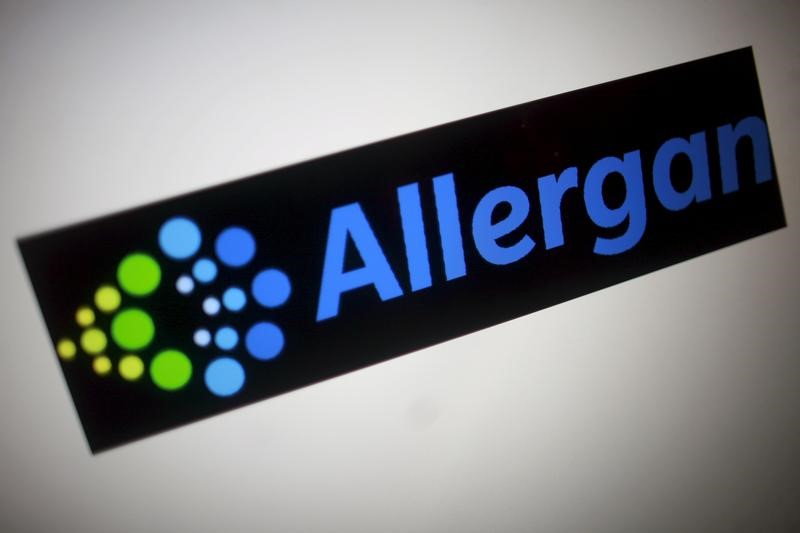By Jan Wolfe
(Reuters) - Over 30 technology companies including Alphabet Inc (O:GOOGL), Amazon.com Inc (O:AMZN) and Facebook Inc . (O:FB) on Friday urged a U.S. patent court to disregard drugmaker Allergan Plc's (N:AGN) contention that its transfer of some of its patents to a Native American tribe shields them from the court's review.
Two trade groups comprised of tech industry leaders argued in a joint brief submitted to the U.S. Patent Trial and Appeal Board that the board has the right to review the validity of patents covering the dry eye medicine Restasis that Allergan transferred to the Saint Regis Mohawk Tribe in a deal announced in September.
"This panel’s statutory authority to review whether the Restasis patents were properly granted as a matter of federal law does not and should not depend on the identity of the patents' owner," said the trade group.
Allergan is arguing the tribe's sovereign status means the patent review board, an administrative court, has no jurisdiction over the transferred patents. The tribe agreed to exclusively license the Restasis patents back to Allergan in exchange for ongoing payments.
Many technology companies have praised the patent court, saying it is a low-cost and efficient way to cancel dubious patents used to bring abusive lawsuits. They fear that, if upheld, Allergan's strategy could be widely adopted and used against them.
The case before the patent board stems from a challenge to the Restasis patents brought by generic drug companies led by Mylan NV (O:MYL). Generic makers had been blocked from selling their own versions of the blockbuster medicine until the patents expired in 2024.
But a federal judge in Texas already invalidated the Restasis patents in a separate proceeding, rendering Allergan's tribal deal effectively meaningless. The company had said it did not object to federal court review of its patents but felt the administrative process was unfair.
Despite that ruling, the Patent Trial and Appeal Board is hearing arguments on whether it must accept Allergan's tribal immunity argument.
A group of prominent law professors, including Laurence Tribe of Harvard Law School and Erwin Chemerinsky of the University of California at Berkeley, submitted a brief on Friday siding with the tribe and Allergan.

"Far from being a scheme to shield patents from review, the agreement from the Tribe’s perspective is part of its economic development plan," the academics said. "The Allergan-Mohawk contract reflects exactly the sort of economic entrepreneurship that Congress has been urging upon tribes."